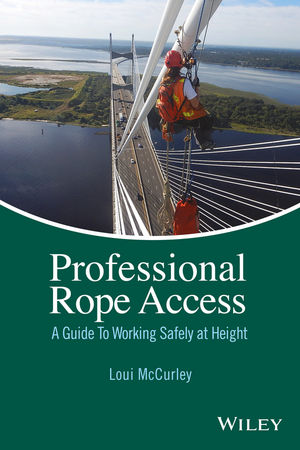 An internet forum exchange initiated by Marsha Willard, executive director, ISSP
An internet forum exchange initiated by Marsha Willard, executive director, ISSP
mwillard@sustainabilityprofessionals.org
The International Society of Sustainability Professionals is in the process of creating a professional certification for the field. ISSP has reached its first big milestone in that process - the publication of the first draft of the Body of Knowledge that defines the job of "sustainability practitioner." This document is in first draft form and is available for comment by members of the profession.
Responses
●“Why? Sustainability is not a single discipline, it is a state of being. The breadth of technical skills that are involved in solving sustainability problems is enormous. Having a certification is no guarantee that the ‘Professional’ is in anyway qualified to deal with a particular sustainability issue. It is more important to bring together the talents from practitioners from engineering, earth sciences, social sciences, planning, agricultural sciences, economics, transportation, etc. Some of these professions already have licensure.
“Adding initials after a person’s name is just another gimmick in an arena that is already filled with gimmicks. Good for the ISSP they can collect a fee, bad, very bad for the movement toward sustainable society.
“In fact the idea is contrary to the notion of sustainability which suggests that money be spent on durable, meaningful goods and services that lead to efficiencies. Hold meetings, publish a journal, provide a forum for people working in the field, collect dues but don't scam us with a meaningless certification.
●“I believe the why is because there are many people that know nothing about all of the talents you note, but are touting themselves as ‘sustainability professionals.’ I understand your argument, but I would also say it would be good to have a bar to show a minimum knowledge of those talents. I would also argue just because you have a P.E., P.G., CPA or some other license/certification does not mean you understand sustainability and the foundation knowledge that is required.
“If a company hires a person internally or as a consultant and that person is not knowledgeable on the foundations of the profession, I would say there are inefficiencies there that can be avoided. If humans were all honest people then no license or certification would be required for any profession. However, we know that is not the case. As such, certification is something that is needed in any profession to ensure there is at least a minimum understanding of the field.
“Using your argument - why did you get a PhD? It is just letters behind your name, correct?”
●“You miss the point - there is no ‘Profession.’ Sustainability is a concept not a profession. The talents of people from many professions are needed to achieve the goals of sustainability. So either the requirements for certification are so broad as to be meaningless as an assurance of competency or they are so tightly knit that they exclude highly qualified individuals from professions and disciplines that need to be brought to the table. The certification is exclusionary and unnecessary. In higher ed (the reason I got a PhD), we have been trying to break down the barriers between disciplines to encourage a "cross-fertilization" of ideas. This proposal is an attempt to erect a barrier, to discourage participation not advance sustainability.
“Further, let's make a distinction between licensure by a state or government agency (law, engineering, medicine, etc) and a certificate or recognition from a professional society - these are two entirely different beasts.
“Since ISSP has been in existence less than a decade, it would be presumptuous to put yourselves in the same category of professional societies as the AMA,AICPA, APA, AWRA, IEEE, or AAAS. It is also interesting to note that all those societies have boards that include a cross-section of the profession: scholars, researchers, teachers and practitioners - not so much with the ISSP board. My guess is this certification has more to do with marketing services than advancing the concept of sustainability.”
●“Much of your thinking aligns with the thinking of the stakeholder group involved in the ISSP professional certification process - we recognize the field is broad and populated with people from a variety of disciplines, but as the ED of ISSP I disagree that there is no profession there. When organizations start creating job titles, it indicates a new profession. And those positions require specific job competencies. As Stephan mentioned, it it becoming important to distinguish qualified professionals from the man, many people who possess some piece of the sustainability picture but not all of it.
“Also let me clarify ISSP's position. This is not a money grab. In fact it is undecided whether or not we will even pursue being the issuing body. I think your accusation was uninformed and overly harsh. Our certification effort is an attempt to bring cohesion and clarity to this emerging field and to help our members and future sustainability professionals focus their professional development strategies. And though you may think it presumptuous, I do put ISSP in the same category as the other professional associations you mentioned and do boast a board of professional academics and practitioners from across all sectors and from most of the continents of the world.
●“We will have to disagree - My position is clear. Sustainability is not a profession and does not need a certification process. Certification would be counterproductive, stifling innovation not encouraging it.”
●“For certification to be done correctly, there would of course need to be an organizational structure to keep records, update tests, re-certify and handle complaints. Who pays for these services? What about professional liability? Will the organization stand behind its certifications?
“Looking at your board of trustees doesn't give me the feeling that this certification is being considered for the good of the planet in mind. Nearly everyone on the board has a business connection, mostly consultants, and hence a predisposition to be biased. Looks more like a trade association than a professional society. There are few if any active pure researchers on the board and physical, life science and engineering disciplines are thin. Before you tag team me on this, I am not opposed to trade associations but they should not try to represent themselves as a professional society.
“I have read your manifesto and would encourage your organization to drop the notion of certification and instead focus on educating business and government decision makers about the overarching principles behind sustainability.
“Since we have reached an impasse, I leave you with a question to consider. Are there significant differences between today's sustainability movement and the preservation movement of the late 19th and early 20th centuries?”
●“Sustainability is a mindset that has been in practice since the caveman discovered the attributes of solar energy, and transcends any business organization. I am a LEED AP, but my allegiance is to sustainability first, not USGBC. Many practicing sustainable professionals would never consider being involved with an organization whose goal eventually focuses on recruiting mass numbers of followers to their unique, controlled doctrine. It's their way, or the highway.”
●“To compare a sustainable accreditation program to a PhD, MD, PE, AIA, or any other multi-year professional educational program is simply ludicrous. 40 hours of studying to pass a simple exam does not produce a sustainable professional. Unfortunately, what these organizations end up doing is breeding professionals who, in large part, are in this for all the wrong reasons. “
●“It seems to me there's a turf war building, and sustainability will likely be the loser. I have to confess that I didn't think ISSP's attempt to engage the professional community in a dialogue about what constitutes our work would engender so much disdain for our organization! I feel compelled, as the ED of ISSP, to defend the integrity of our members and our process. As I tried to explain before, our intent with this certification process is NOT to enforce a particular doctrine, build an empire of followers or create a monopolistic revenue stream.
“We engaged in this effort for several reasons. Primarily because our members have been asking us for help in a) determining what skills and abilities they need to obtain and develop in this fast-changing profession to stay relevant and current and b) in distinguishing themselves from the people who are flocking to the field with disparate sets of experiences and expertise. We at ISSP are acutely aware of the dangers of putting a stake in the ground while the field is still emerging, but we felt the push to do this because of demand from our membership and because we were seeing other attempts at this that were not following accepted protocols. “
● "You have people that are being hired to do exactly what you say - break the barriers and "cross-fertilize" across arenas to make companies, universities, organizations, governments, etc. more sustainable."
“I wish I knew where there were jobs like that.. I haven't seen any advertised.’
●“As an academic and the advisor to our new BS/MS Program in Sustainability Science, I find this discussion to be quite interesting. Our Program has a solid foundation in the Earth and LIfe Sciences and the Social Sciences and Economics which, we believe, provides students the necessary background to pursue sustainability solutions to problems.
“There is both a pure research and an applied problem-solving component to our program, depending on the student's orientation. We do find that today's student leans toward the applied problem solving tract. I encourage any attempt to delineate some basic underlying skills and methodologies that sustainability professionals should possess.
“This does not mean that you cannot be a sustainability professional without this skill base and have a more "spiritual" and "intuitive" vision of sustainability. It simply means that your organization provides a certification based upon your definition of what that skill base should be. Since the organization is setting its own ‘operational definition’ of what a sustainability professional is, it should announce what that definition is and how it measures that certification. In the end, the quality of the certification will be based on how the certification is received in the public arena.”
●“I run a formal graduate degree in sustainability and post grad study in water. Many of the folks I know in this industry use the title for outreach or political favor; to me, it’s about education, credibility and doing the right thing. As far as the AMA- did I mention that sustainability is my second career? Prior to sustainability, I was in healthcare for years and many prominent clinicians that I know consider the AMA a joke. ‘
●“If the sustainability professional doesn't exist, but sustainability jobs do, then the consequence is that the jobs are more likely to be filled by people less competent to perform them. Here in the UK there has been a tendency to fill sustainability roles from within, i.e. unqualified but trusted employees. I think this is largely because companies want control of the agenda, but also because they don't really know what to look for (and recruitment personnel haven't helped our "profession". Either way, I can only see the certification of sustainability professionals as a good thing. It may not be a perfect solution, because of the breadth and complexity of the subject, but surely it's a whole lot better than what we have. “
●” I find that here in the UK, any job that has 'sustainability' in the job title, like 'sustainability consultant', is invariably to do with energy efficiency in buildings. It's like describing the entire field of medicine as being only to do with kidney problems or whatever. Sustainability is a huge concept, and either the recruitment sector in the UK just hasn't understood it, which is likely in my opinion, or employers haven't. “
●“I agree, I think neither the employers nor the recruiters have understood it, but they'll certainly not understand it any better by appointing someone to the role who also doesn't understand it. The word is abused and mis-used, and REALLY poorly understood, but I do think that bringing in a standard for the professional (included knowing where their competence ends) is a step to rectifying that situation.
I once enquired about a sustainability manager role. The recruitment agent asked if I was a Chartered Engineer (yes that backs up your theory on the energy mgmt. focus). When I said no, that I was Chartered Environmentalist, they asked me what that meant. “
●“That anecdote is depressing. As someone who's trying hard to find work in the sustainability field, to know that's the term is so widely misunderstood explains a lot.
“Sustainability covers a matrix of issues including climate, sustainable resource use, biodiversity loss, inequity, community, land degradation, water shortage, food shortage and other key issues, and links them together, defining an approach - almost a philosophy - that ensures all of these issues are managed in a joined up way such that nothing is depleted.
“This means thinking across societal and business silos (to use a management consultancy buzzword) within a connected framework that uses appropriate technologies, applies education, constrains consumption and reduces inequity. So a different paradigm (oops, another one) is required from the conventional competitive, shareholder profit driven one that we're all used to. Energy efficiency is certainly a part of that, but only a part. And how government, business and communities interact to ensure energy efficiency is also part, as is how managing energy interacts with all of the other environmental and societal components that need to be considered in establishing a sustainable society. Everything needs to be considered as part of a 'sustainability process'. I suppose there might be value in perceiving sustainability in the same way that 'business process reengineering’ was a few years ago, except the process reaches out across environment and society as well, and isn't just constrained to business internals. “
●“A problem with the certification of sustainability professionals is surely that, if employer's expectations of the function of a sustainability role is so limited and mis-conceived, even those who are certified are only going to find the same old range of jobs. And I'm assuming that certification ensures that the certified understand sustainability correctly.
“Sustainability is a concept that is hugely exciting and all encompassing, and which would change the world greatly for the better. It mustn't be diluted and undermined because of the ignorance of departmental heads and recruitment consultants. So any certification process would have to invest heavily in promoting the message of just what Sustainability (sustain-ability, to borrow a phrase from a friend of mine) really, actually means, and just what a potential recruiter is getting when they seek or employ a 'Sustainability Professional'. “








